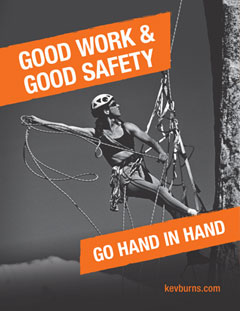Being in a position of authority doesn’t automatically make you a leader. Your safety management positon doesn't automatically elevate you.

Managers, who have no self-confidence about their abilities, cling to the rules. The reason for that is simple: the rules are always on your side and when you stick to the rules, you will always be right. That's why safety meetings cling to the rules, the statistics and the reports; they are irrefutable. They are proof. They are results. By clinging to the rules and statistics, there is no room for employees to challenge the person delivering them.
It's when safety managers go off-rule-book that things go grey. It's not black and white anymore. How one person views safety is different from how the next person views it. Employees who have experienced workplace injury view safety differently than the young, inexperienced worker.
"Because it's the law" becomes the mantra for every safety manager to escape judgment and ridicule. Stick to the rules, the process, the procedures and the accompanying statistics and you have the law on your side. As a safety manager, you will be safe. And that is how safety managers become safety cops. They stick to the code and quote chapter and verse. It's easy. It's safe. There's no danger of confrontation.
Close The Rule Book
But what if, for a day, you closed the rules book and opened the care-about-people book? What if you quoted chapter and verse from that book for the day? Just in case you’re looking, the care-about-people book doesn’t exist. There is no chapter and verse to quote from. You would have to think about every interaction and allow yourself to be human, to be vulnerable.
It’s takes tremendous leadership ability to place yourself in a position of vulnerability. False-leaders (mediocre managers) need to be right. They do not like having their authority undermined. It takes no guts, courage or confidence to stick to the rules.
Leadership Has Nothing To Do With Management
Being in a position of authority doesn’t make you a leader. In fact, management and leadership are not related. You don’t have to be in management to be a leader. One has little to do with the other. Mediocre managers undermined by their employees illustrate the point. When an employee can convince others to undermine the manager, the employee becomes the leader.
Employees who feel that they are being controlled by their manager will push back. When employees feel forced to do something by title or authority, they will not view their manager or supervisor as a leader - only a boss. An authoritative boss won’t be able to get employees to work as a team. They’re not a team. They are employees.
Safety Improves With Connection
When you view safety as a set of laws, you demand that employees follow the rules. That removes all personal connection to you as a leader. You become a non-negotiable and demanding boss. For employees, when there is no connection to the leader, there is no connection to the job. Without a connection to the job, there is no connection to safely doing the job.
Statistics, figures, TRIF rates and LTI-free status are not personal connections to safety. They are just numbers. There are no faces or names or personalities required to report on safety performance. It’s impersonal. Until safety becomes personal, you will struggle to get buy-in from employees.
The Safety Record Belongs To the Employees
In my safety keynote presentations, I congratulate front-line workers for the safety record. It's not management’s record, it’s theirs. Management may support the employee doing the right thing, but management is not doing the front-line work. So when a safety manager takes the credit for an exceptional safety record, it undermines the employees.
Do you want people to care about the work they do and to do it safely? Then put away the rule book and open up the care-about-people book and see how that goes. Understandably, the rules are there for a reason and people will still be required to follow them. But what if the discussion centered on something other than their adherence to rules? What if, you had an honest, heartfelt conversation about their contribution instead?
Employees will care about their work when they know how much you care about them. You can prove to them how much you care by taking an interest in each one of your people. Get to know them and express your gratitude for their contribution. Make them proud. People who are proud of their work want to protect it. That means safety becomes an employee’s clear choice.
One of the other things you can do differently to get employees talking is to download my free safety posters. Print them up and post them around the job site. Shift the conversation to more than just rules.



